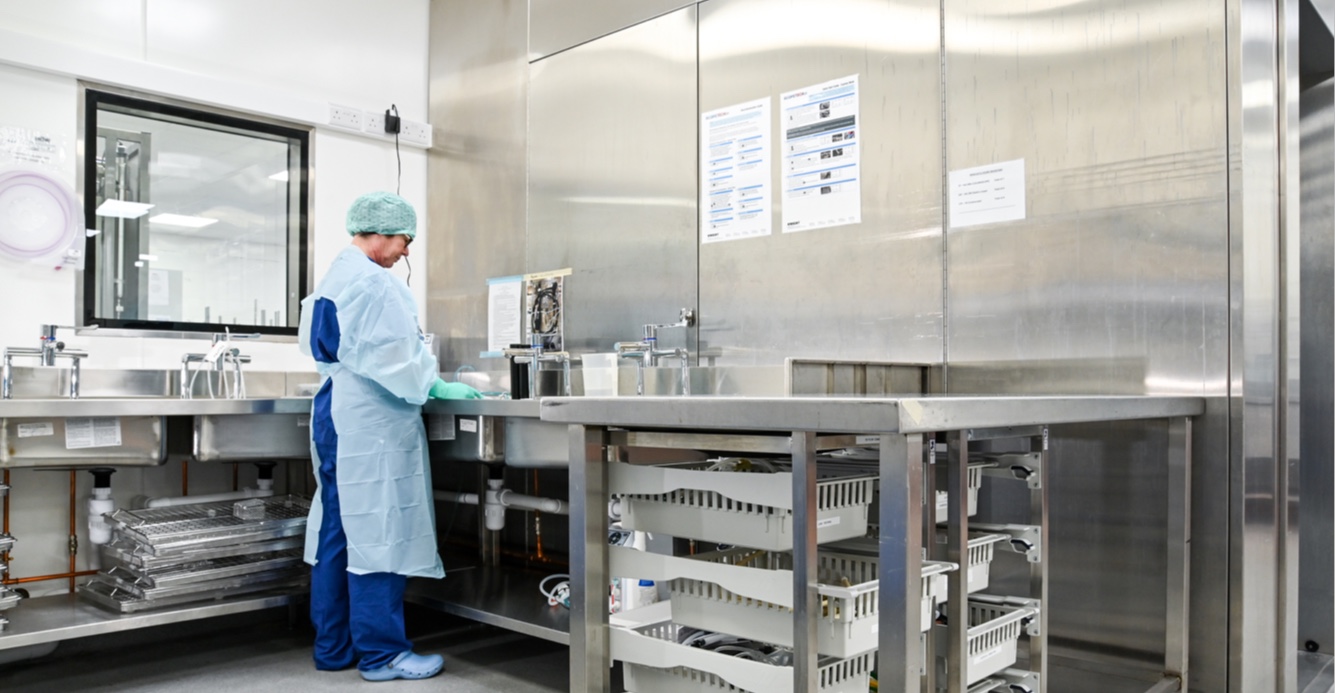Health & Environment
The excellent hygienic properties of stainless steel are recognised by its use for surgical instruments and medical implants, as well as in food and drink processing, catering and washroom installations. Its smooth, neutral surface makes it difficult for bacteria to adhere and survive, and it is also very easy to clean, so strict standards of hygiene are possible at every stage of the process.
Stainless steel is 100% recyclable and therefore less harmful to the environment than many other materials in common use. The production process uses stainless steel scrap as its primary raw material and new stainless steel comprises over 70% recycled material. This percentage is increasing as the use of stainless steel expands.
The main component of stainless steel is scrap iron, of which there is no shortage. Other metallic elements alloyed with the iron are chromium and molybdenum which are plentiful within the earth’s crust. Nickel, which comprises around 10% of the standard austenitic stainless steel grades, is less abundant but is not in short supply and is being recycled effectively.
The quantity of energy required for manufacture of a product, the embodied energy, is of growing concern to environmentalists. More efficient process technology has allowed steelmakers to significantly reduce the amount of energy used in the production of stainless steel over the past two decades. Stainless steel’s low thermal conductivity makes soldering and welding more energy efficient than with many other metals.
Stainless steel washroom and sanitaryware has a life expectancy of at least decades and possibly centuries, meaning that energy and other costs of manufacture are spread over a very long period indeed. Even at the end of its life, more commonly the result of fashion or aesthetics rather than wear and tear, the material has a high scrap value and can be completely recycled.
As a result, stainless steel can provide the most economic long term solution compared with other materials. This is especially true when maintenance costs over the lifetime of an installation are taken into account. Stainless steel can be maintained without the need for either repainting or resurfacing, frequently making the most cost effective solution over the life cycle of a project.

Stainless steel stations in use at Nuffield Hospital in Wetherby.
Get in touch
Stay in touch
Lower Wortley Ring Road, Leeds, LS12 6AA
+44 (0) 113 263 4184
+44 (0) 113 231 0560
Monday - Thursday 9am - 5pm
Friday 9am - 4.30pm
© Copyright Pland Stainless Ltd 2021. All rights reserved. | Conditions of sale | Privacy Policy | Environmental statement
Registered Company Number: 4008116 | VAT Number: GB 747 1555 18

